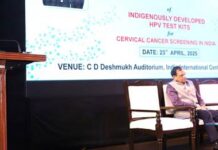Union Minister of Health and Family Welfare, J.P. Nadda, emphasized that India is on track to lead the global healthcare revolution by integrating technology with human-centered care. He noted that the vision of International Health Dialogue (IHD) 2025 aligns with national objectives to enhance healthcare access, quality, and reach across India and globally.
International Health Dialogue 2025: A Platform for Collaboration
Inaugurating the International Health Dialogue (IHD) 2025, hosted by Apollo Hospitals, Nadda highlighted the event’s role in shaping the future of healthcare. The dialogue served as a gathering for global healthcare leaders and policymakers, focusing on real-world solutions to modern healthcare challenges. A key milestone of the event was the launch of the World Economic Forum’s India Digital Health Activator, aimed at accelerating digital health transformation in the country.
Specialized Forums Driving Change
IHD 2025 featured multiple specialized forums addressing critical healthcare themes:
- 12th International Patient Safety Conference (IPSC): Provided a long-standing platform for discussing patient safety and care improvement measures.
- Technology for Health Innovation and Transformation (THIT) Conference: Hosted the announcement of the India Digital Health Activator by the World Economic Forum, emphasizing the role of AI and digital technology in improving healthcare delivery.
Balancing Innovation with Compassion
Dr. Prathap C. Reddy, Chairman of Apollo Hospitals, underscored the importance of merging technology with compassion. “We must embrace both innovation and compassion to create a future where healthcare knows no bounds,” he stated, highlighting the need for a balance between cutting-edge advancements and human touch.
Dr. Preetha Reddy, Executive Vice-Chairperson of Apollo Hospitals, reflected on the global healthcare transformation, stating, “Through our ‘Heal in India’ initiative, we are making healthcare more accessible and beneficial with state-of-the-art technology. While AI and wearables enhance efficiency, the human touch remains indispensable. We must act swiftly, accurately, and with genuine compassion.”
India’s Role in Global Healthcare Advancement
Dr. Sangita Reddy, Joint Managing Director of Apollo Hospitals, reinforced the hospital’s mission to make healthcare accessible, available, and affordable. She emphasized Apollo’s contributions to vaccine development and technological adoption. “One day, the world will look to India for genuine and effective care,” she stated confidently.
Dr. Madhu Sasidhar, President and CEO of Apollo Hospitals, highlighted AI’s transformative role in drug discovery and disease detection. “AI is accelerating clinical trials, improving early disease detection, and revolutionizing patient care. However, we must establish robust governance frameworks to ensure ethical and secure innovation,” he cautioned.
Strengthening Healthcare Diplomacy
On the second day of IHD 2025, discussions focused on improving operational systems and patient care delivery. Reflecting on the sessions, Dr. Sangita Reddy stated, “This platform allows us to share knowledge and ideas to heal and help the world. It also underscores the vital role of Indian healthcare professionals in global healthcare diplomacy.”
Minister of External Affairs, Dr. S. Jaishankar, acknowledged India’s contributions to global healthcare, stating, “From specialty hospitals to primary healthcare centers, we have made meaningful impacts during the COVID-19 pandemic and beyond. Sharing our medical expertise remains a core pillar of our global approach. Through the International Health Dialogue, India has emerged as a hub for global collaboration in equitable and accessible healthcare.”
A Unified Vision for the Future
IHD 2025 provided a collaborative platform for healthcare professionals, technology experts, and policymakers. The event showcased innovative solutions while fostering discussions on building a healthcare ecosystem that is more accessible, efficient, and patient-focused. India’s leadership in integrating technology with human-centered care positions the country as a key player in shaping the future of global healthcare.























